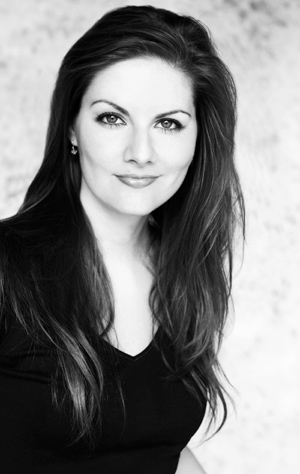SAT coach and writer Elizabeth King, 33, coaches students to think tough--and to figure out what they’re good at before deciding on a career

Elizabeth King wants to change the way American kids think about preparing for college. As the founder of Think Tank Education, for almost a decade she and a small team of private coaches have been teaching students not just how to maximize SAT and ACT scores, but how to use the tests to build the kind of “mental toughness” that comes in handy in college and the real world beyond school, too. As a career coach, she works with writers and other creative people to develop action plans to advance their goals. Her interdisciplinary major from Mount Holyoke College incorporated economics, mathematics, art history, and studio art. Here, the author of Outsmarting the SAT and the Stay Out of School blog, argues that in a career landscape in flux, a traditional liberal-arts education is more valuable than ever.
FAST COMPANY: You talk about “mental toughness” on the website for your tutoring business. What does that mean? And how do you teach it in the context of prepping for a standardized test?
ELIZABETH KING: What’s important about what we do and how we approach the test is that we're focused on learning and fundamentals. We’re really interested in teaching students how to learn and how to gather information, how to create an inner mental web and understand how new pieces of information plug in to that. We happen to teach that in the context of navigating the SAT or ACT, but it turns into a more interesting conversation when they realize they can use the same inner mental web when encountering the world. Ultimately this kind of learning becomes a roadmap for lifelong learning, problem solving, and creativity.
 What are the career expectations of the students you’re working with? Do they know what they want to do at the stage you're encountering them?
What are the career expectations of the students you’re working with? Do they know what they want to do at the stage you're encountering them? Not really, unless they’re hell-bent on going into physics, or they just want to be lawyers but don’t know why. I’m not hearing any more from students that they want to be a nurse or go into public relations or journalism. Students have a sense of the flexibility of the modern work landscape. They know they won’t work for Bell Telephone and be there for 30 years. People have to figure out what they’re good at and how to build on it. I have a lot of conversations with students, when they’re in college and after, about things like what their online personality should look like, and how to articulate what interests them and why.
What has your own career--from liberal arts major into writing, tutoring, and personal coaching--taught you about that/being adaptable?
I’m on the line between Generation X and the Millennials. I toggle back and forth between the two, but when I got out of college I was sort of old-school in my mindset. I expected to do the same thing for a long time, and if people would say, “You’re really good at X”--even if I didn't know what X was--I would just say, “I don’t think so.” The avalanche of things happening in my career in the past five years came when I started taking those people at their word and listening when someone said I had a certain skill. That's all predicated on a growth mindset. I might have had no idea what they were talking about, but I’d try it and add another node to my skill set.
You’re encouraging people to be creative, but at same time you’re helping them excel at these standardized tests that don’t seem to measure or encourage creativity at all. Is that weird?
You can’t create an other without something that’s already existing. In many ways, the SAT and ACT are quite arbitrary, but it’s one way of testing critical thinking and the application of fundamentals that every kid in high school should be getting, but they aren’t even in the best schools. I’m interested in finding a way to use the tests to teach students how to decode what’s in front of them, to understand they have toolsets and skill. The tests are a way of showing they have the nerve to apply what they know when they’re seeing in a new way on a test. It’s like a workout for mental tenacity.
You also have a blog called Stay Out of School. You’re talking about graduate school, not college, but do you really think people are better off figuring things out on their own?
I wanted to be provocative--it’s a quote from David Mamet and it’s just good advice. It’s a problem that that’s good advice, though. I’m not saying everyone should stay out of school--that’s not a real solution. But ultimately the way I work and everything I’m talking about is the product of continually creating a liberal arts education for myself. People are mad about learning “skills,” but I think to be successful it’s also important to learn process and culture, the way people think, and the connections between things. Whether you’re practicing on a piano, in books, or on a sports field, it’s the practice itself that’s more important than the particular skills involved.
It sounds like you’re really advocating for a traditional liberal arts education. But a lot of people complain that that kind of education isn’t really adequate preparation for today’s job landscape.
College is not trade school. Who's really complaining? The people really who are pissed off are the 22- and 23-year-olds who thought were going to get out of school and get some swell job and now have to figure out where to get it. It’s spoiled brats who thought they bought their ticket. It’s an absurd one-to-one expectation to think that a college degree guarantees a job. That’s not the reality anymore, and it hasn’t been for a long while.
[Image: Flickr user Krug6]
ICT4PE&D
No comments:
Post a Comment
Thank's!